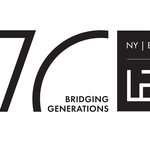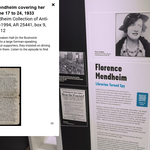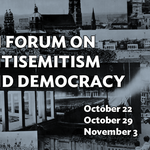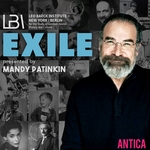LBI Celebrates 70th Anniversary Under the Patronage of German Federal President Frank-Walter Steinmeier
- Datum
- Di., 8. Apr. 2025
An international milestone in the study and preservation of German-Jewish history
In 2025, the Leo Baeck Institute (LBI) celebrates its 70th anniversary with the theme “LBI at 70 – Bridging Generations.” The anniversary festivities will take place under the patronage of the German Federal President Frank-Walter Steinmeier.
Federal President Steinmeier praised the Institute’s seven decades of international research and promotion of German-Jewish culture and history. “Leo Baeck ‒ and this is his legacy ‒ pursued reconciliation between the religions and cultures, between Christians and Jews in Germany,” said Federal President Steinmeier. He emphasized that the Institute’s work deserves recognition and support.
Prof. Michael Brenner, International President of the Leo Baeck Institute, commented on the occasion of the German Federal President assuming patronage in the Institute’s anniversary year: “We are grateful for this recognition of the importance of our work. Preserving history and demonstrating the relevance of the past for the present and future is more important than ever in today’s world. The Leo Baeck Institute tirelessly researches German-Jewish history – a history that constantly raises new surprises and questions.”
Federal President Steinmeier has been an advocate for German-Jewish history and culture throughout his career. In 2021, the LBI New York honored Federal President Dr. Frank Walter Steinmeier with the Leo Baeck Medal, the Institute’s highest honor, for his longtime commitment to honoring and preserving Jewish life in contemporary Germany, as well as his vocal and forceful opposition to the rise of contemporary antisemitism. Upon receiving the award at the LBI New York’s gala dinner in 2021, the Federal President said, “I feel grateful for and humbled by the miracle of reconciliation bestowed on my country and me. This miracle did not fall from heaven ‒ people gave us this gift! So many Jews, survivors of the Shoah and their descendants from Europe, Israel, and the United States, opened the eyes of post-war Germans. So many of them reached out their hand to us Germans, and we grasped them gratefully. Only thanks to and with these people were we able to follow the long path of reconciliation started by Leo Baeck.”
The 70th anniversary will be marked by events and projects across Israel, the UK, the USA, and Germany, reflecting the theme “LBI at 70 – Bridging Generations.” The LBI will celebrate the anniversary and Federal President Steinmeier's patronage in Berlin on June 17. The keynote speech will be given by writer Doron Rabinovici.
Aktuelles





